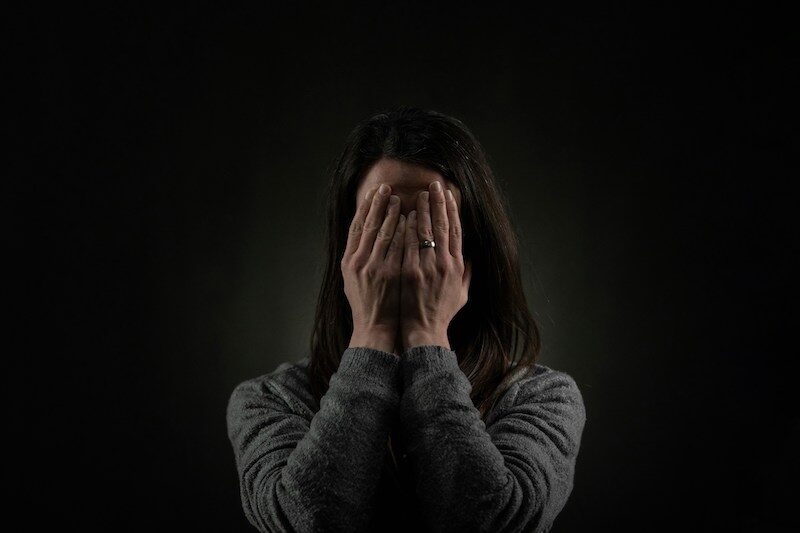1.
I would like to make the case for bitterness, and I don’t want anyone to stop me. Don’t tell me how ruinous it is to hate the neighbors who voted for my demise—they’re hanging the Christmas wreaths alongside signs with that man’s name. I’m no stranger to bromides about positive thinking and scoldings of when we chose to embrace the opposite. The handcuffs of hatred. Bitterness “festers,” devours youth, takes years off our lives. Leads to cancer, ulcers. Keeps us in a locked room, loving walls more than we love life, how bitterness makes us not unlike the cow who relishes the soft pat of her keeper as he prepares the rape rack. Maybe, the reasoning goes, if we’d rejected bitterness, we’d have realized those walls were cardboard. We wouldn’t be that ghost in the movie, the girl—always a girl, her bitterness a conceit—who can’t move beyond the crest of her violation to the heaven that awaits. Just let it go, girl. But she is tethered to a house, a room, an object and can’t move on—and no one understands why. Just as you’ll never understand the bitter resolve of the girl in Delphi, Indiana, who recorded the voice on her cellphone. Not out of hope, as people like to think, but of deep despair. She knew what waited for her and her friend once they left the trestle with that man. Guys. Down the hill. This girl, she sent a letter to the future. Your job: read it.
2.
I know about bitterness: I felt it the first time they voted for him, and the second time they voted for him, and the time they found a kid at the bottom of the apartment swimming pool. The first time someone broke my heart, the first time I lost a job, a friend. The time I lost a student to weapons that didn’t exist. November in Connecticut, years ago, a strange man with red dreadlocks and pink skin followed me to my car and tried to get in the driver’s seat. When I locked the door he placed his palm on the window. I sped away, called the police. When they didn’t catch him I was told not to be bitter. They didn’t catch him—they did all they could: kept me in the station all night looking for inconsistencies in my story, asked me for my friend’s middle initial so they could confirm I was phoning him when the man tugged the car door’s handle. They showed me Myspace profiles of men with red hair and made me assemble a composite sketch derived from four computerized face types. Days later, the police sent a warning email to the student body highlighting everything I did right. She didn’t open the door to him. She left the immediate area. She called the police and told us everything.
3.
Another November nearly ninety years ago: Walter Hachenberg, an ethnic Jew, lives in Germany in the 1930s. Described as a “merry soul,” he worries little when Hitler took power. Why worry? He isn’t a Jew. His father is Jewish, but Walter is Protestant. He has other things that keep him busy—the woman he loves, his passion for film. He can’t accept that the Nazis see him as Jewish. Walter fought in World War I, sports an Iron Cross that he begins wearing again out of solidarity. But when his Jewish father sees what is happening, he understands. Welcomes bitterness. He tries telling Walter that bitterness has its own agency, its own taste and touch, a nourishment that imbues it with place and time—a vividness that only the future can translate. After Kristallnacht, Walter’s father slits his throat. Hundreds more commit suicide. But Walter the veteran still hopes. He tries to rejoin the Germany military. The Wehrmacht refuses him, sending him to Bremen-Farge Concentration Camp instead. He survives. We’re told he was lucky.
4.
You girls must know by now that they rebuilt that rickety trestle to make it an inviting, safe bridge. Not the place where you took your last Snapchat and heard, Guys, down the hill. You know better than I do that we are never safe and only some are lucky. Luck is bitterness postponed. The bridges we fortify are nothing, glossed by the film of pollen and self-delusion. Only our bitterness is real: it compounds as it grows, becomes something you own, warm and divine, not unlike like the knife Walter’s father took to his throat to release the underneath. And yes, to bitterness we sacrifice our youth. But what is youth compared to a letter to the future, a generous warning, a message of dread for someone else to decode before it’s too late?
